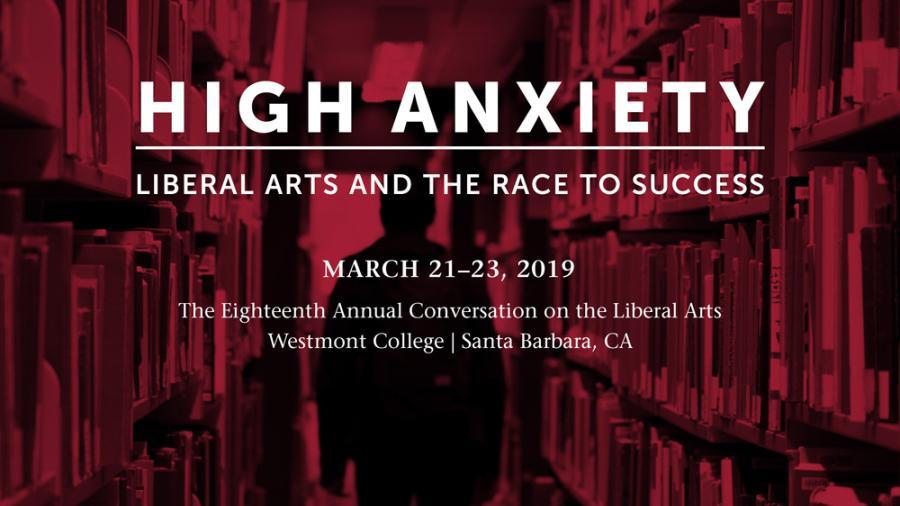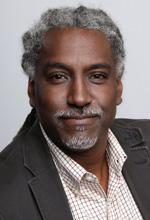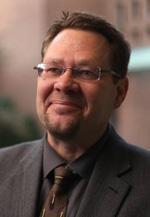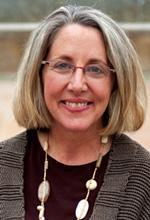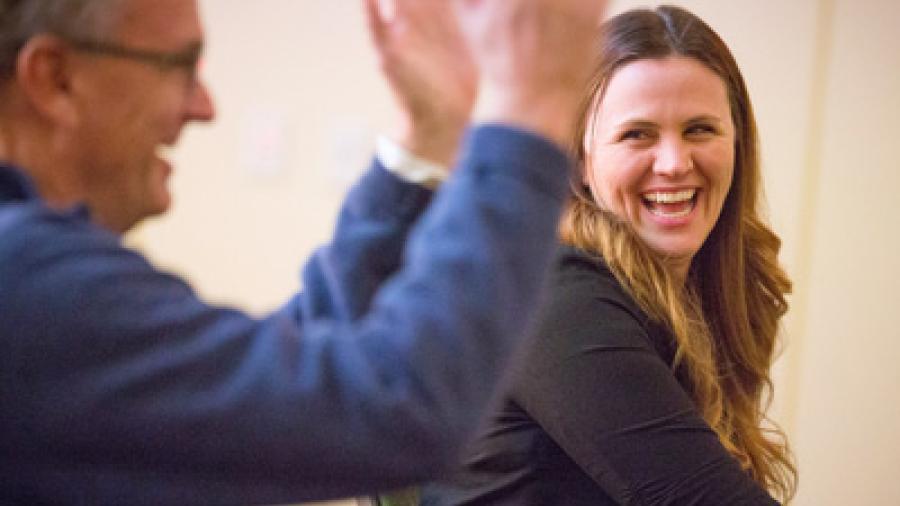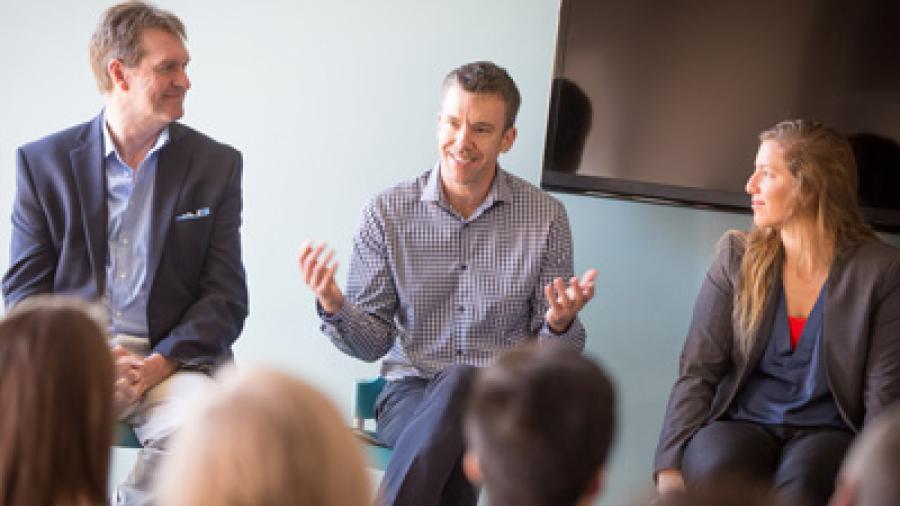“High Anxiety: Liberal Arts and the Race to Success"
March 21-23, 2019 | Westmont College, Santa Barbara, CA
Today’s undergraduate students are under more stress than ever—we know that empirically, and we know that from our own experience with students. And anxiety in college is often the product of years of anxiety about college—getting the right grades, participating in the right extracurriculars, choosing the right school, all with the purpose of attaching a prestigious institution to one’s name and resume.
Liberal arts undergraduate education should be an antidote to these anxieties—a chance (perhaps the chance) to wrestle with the big questions, a time when young people can benefit from learning for its own sake. But having known academic life as what one critic calls “a high-stakes, twelve-year sprint,” students understandably have trouble slowing down to enjoy, and to be formed by, the kind of broad exploration that liberal education offers.
What is the place of liberal education when college has been reduced to the most important leg of a utilitarian race to “success”? What pedagogical techniques, curricular strategies, or co-curricular programs will enable students on the fast track to realize the formative potential of their undergraduate years? What practical measures will mitigate students’ short-term fears, and address the more existential fears they perhaps point toward? Might the liberal arts even redirect and redeem students’ anxieties, offering healing for young people who have experienced life as one long race to the next thing? The eighteenth annual Conversation on the Liberal Arts will gather scholars, administrators, students, and practitioners to consider these questions and more.
Who should attend?
- Faculty who are concerned about the cost of “success anxiety” for their students’ well-being, or who have sought to intervene in that experience;
- Administrators who wish to support student thriving, in academic, mental-health, or other capacities;
- Student-life professionals who daily encounter students’ identity and success narratives and the anxieties they engender;
- Undergraduate and graduate students whose work or life gives them perspective on the pressures of college and career;
- Anyone with an interest in the value and practice of liberal education.
Timothy K. Eatman is the inaugural dean of Rutgers University-Newark's Honors Living-Learning Community, a college access and success program that fosters the development and community engagement of talented students with diverse life experiences. An educational sociologist by training, Dr. Eatman is also Faculty Director Emeritus of Imagining America, a national consortium that hosts innovative interdisciplinary conversation about the civic purposes of higher education.
Jaco Hamman is Associate Professor of Religion, Psychology, and Culture at Vanderbilt University, specializing in the promise and human costs of technology. His recent books include Growing Down: Theology and Human Nature in the Digital Age (2017) and the forthcoming The Millennial Narrative: Sharing a Good Life with the Next Generation.
Connie Horton is Vice President for Student Affairs at Pepperdine University; prior to taking that position in 2017, she served as director of Pepperdine's counseling center for more than a decade. In these and other roles, Dr. Horton has become a recognized expert in the fields of student mental health, resiliency, and college success.
"This conference has reminded me, after some time wandering in the proverbial desert, of why I got into academics in the first place." —Conversation on the Liberal Arts participant
Our annual Conversation on the Liberal Arts gathers faculty, administrators, and students from colleges and universities nationwide to address opportunities and challenges in liberal arts education. How do we educate for membership in a global community? How is liberal education related to work and vocation? What challenges and opportunities are being created by changes in the business of higher education? We learn from some of the best in the field, but mostly we learn from each other as we share how things look through our sometimes very different lenses.
Format
The Conversation on the Liberal Arts is not a typical academic conference. We have great speakers, and we have much to learn from them. But all of us are engaged in this work everyday, so we also have much to learn from each other. To stimulate this mutual teaching and learning, we keep the conference small; we anticipate fewer than 100 participants. Plenary sessions include as much time for participants' questions and contributions as they do for the speakers' talks. Concurrent sessions are opportunities for discussion between presenters and attendees about key elements of the presenter's work. And there is ample time for informal conversation over meals and coffee—often the most fruitful moments of the conference. The crucial element throughout is conversation, where we can all benefit from each other's insights.
Participants
We also profit from a wide range of perspectives. This is a conference where administrators, scholars, students, and practitioners can talk to each other about how the issues look from their different positions, and where those from large universities and small liberal arts colleges, from public institutions and private, from faith-based institutions and those with no religious affiliation can explore shared challenges from our differing contexts. Attendees consistently remark on the distinctively personal tone of these three days, praising the diverse, face-to-face dialogue that often is missing at academic gatherings.
In short, the Conversation on the Liberal Arts is a hospitable place for dialogue across what are too often boundaries in higher education—dialogue about the shared challenges, and especially the shared promise, of liberal arts education. We hope you'll join us!
We welcome individual paper submissions and full panel proposals for the Conversation on the Liberal Arts; the deadline for submission is December 17, 2018.
|
Conversation Registration |
$250 |
|
Dual Registration for Conversation and March 20 Praxis Workshop** |
$320 |
| Student Discount for undergraduate and graduate students | -$100 |
Proceed to the online registration form
**In connection with the 2019 Conversation, the Association for Christians in Student Development will hold a pre-conference praxis workshop entitled "The Rising Tide of Student Anxiety" on Wednesday, March 20. All are welcome to attend. The praxis workshop is designed with Christian educational professionals in mind; the Conversation assumes no religious affiliation.
Conversation registration includes all meals Thursday dinner through Saturday lunch, as well as shuttle service between select hotels and the Westmont campus. Praxis workshop registration includes breakfast and lunch Wednesday. Shuttle service is not available for the workshop.
Registration deadline is Friday, March 15.
Welcome and Introduction
Chris Hoeckley, Westmont College
Plenary Address: “Major vs. Mission in 21st Century Higher Education: Beware of Shrinking Imagination”
Timothy K. Eatman, Rutgers University-Newark
Plenary Round Table
Hosted by Westmont College Provost Mark Sargent
Westmont Chapel Service
Jaco Hamman, Vanderbilt University; music by Christopher Williams
Plenary Address: “Escalating Anxiety: Trends, Dynamics, and the University Response”
Connie Horton, Pepperdine University
Plenary Address: “Flourishing Students: Growing Down Amidst Ladders of Success”
Jaco Hamman, Vanderbilt University
Participant Information
Flying
The Santa Barbara Airport is just 20 minutes from campus, and 15 minutes from waterfront hotels. Rental car and taxi services are conveniently located on site. Los Angeles International Airport is a 75-minute drive from Santa Barbara; from there, the Santa Barbara Airbus ($50) takes you directly to the complex of waterfront hotels that will be served by our campus shuttle. Amtrak is not cheaper or more convenient (requiring a shuttle to and from LA Union Station), but provides spectacular views of the LA basin and Pacific coastline.
Driving and Parking
Driving directions to campus may be found here. A map of campus may be found here. Parking at Westmont is free and no permit is necessary. Please park in the Kerr Student Center Parking Lot (P1 on map). To get there, enter upper campus and make an immediate left into the lot. Registration is at the Global Leadership Center, just to the south of the parking lot; from the lot, walk downhill past Kerr Student Center, then bear left across the long footbridge.
Train
The Santa Barbara train station is at the lower end of downtown, a short taxi ride, or 20-minute walk, from East Beach hotels.
Campus Shuttle
Shuttle service will be provided between campus and the hotels listed below. Shuttles will run at the beginning and end of the program each day (see "Shuttle Information" tab for more).
Accommodations
The campus shuttle will serve only the hotels adjacent to East Beach (see the "Shuttle Information" tab for shuttle stop locations). You may wish to stay elsewhere, but please be aware that you will be responsible for arranging your own transportation to and from conference events. Shuttle-line hotels include:
- The Hilton Santa Barbara Beachfront Resort
- Santa Barbara Inn
- Hyatt Centric Santa Barbara (served directly by the Santa Barbara Airbus from LAX)
- The Inn at East Beach
- Cabrillo Inn at the Beach
- Pacific Crest Santa Barbara
- Motel Six
The shuttle will run between campus and select local hotels. City buses and local trolleys stop at these locations, too, so be sure to look for the Westmont shuttle. There are two shuttle stops: East Beach and Hilton, both on Cabrillo Boulevard (see below for precise locations).
Shuttle Stops
- The East Beach stop is just to the east of the Hyatt, and serves all waterfront lodging except the Hilton. From these hotels, most participants will walk to the beachfront boulevard (Cabrillo) and turn left. The stop is a bus turnout at the corner of Cabrillo and Ninos Dr. View in Google Maps
- The Hilton stop is just to the east of the Hilton Santa Barbara Beachfront Resort, and serves this hotel only. Exit the front of the Hilton, toward the beach. Turn left and walk along the waterfront until you see a large rainbow arch sculpture. The shuttle stop is directly in front of this sculpture on Cabrillo Boulevard. View in Google Maps
Shuttle Schedule
Shuttles run once at the beginning and once at the end of each program day:
| Thursday, March 21 | |
| Depart waterfront hotels for Westmont campus (Global Leadership Center) | 2:45pm |
| Depart campus (Global Leadership Center) for waterfront hotels | 5:30pm |
| Friday, March 22 | |
| Depart waterfront hotels for campus (Global Leadership Center) | 8:30am |
| Depart campus (Kerr Student Center parking lot) for waterfront hotels | 6:30pm |
| Saturday, March 23 | |
| Depart waterfront hotels for campus (Global Leadership Center) | 8:15am |
| Depart campus for waterfront hotels | 12:15pm |
Thursday, March 21 |
|
|
2:45 pm |
Shuttles depart waterfront hotels for campus (drop off at Global Leadership Center) |
|
3:00 pm |
Registration | Global Leadership Center |
|
3:30 pm |
Welcome and Introduction (video) | Global Leadership Center Plenary Address: “Major vs. Mission in 21st Century Higher Education: Beware of Shrinking Imagination” (video) |
|
5:30 pm |
Dinner in groups at downtown restaurants (included in conference fee) |
Friday, March 22 |
|
|
7:00 am |
Trail Walk | Departs from Global Leadership Center Classroom Paul Willis, Westmont College Easy to moderate walk on an unpaved trail circumnavigating campus. |
|
8:30 am |
Shuttles depart waterfront hotels for campus (drop off at Global Leadership Center) |
|
8:30 am |
Coffee and pastries | Global Leadership Center |
|
9:00 am |
Plenary Round Table (video) | Global Leadership Center |
|
10:30 am |
Westmont Chapel Service (video) | Murchison Gymnasium |
|
11:30 am |
Concurrent Session 1 |
|
1a. Student Professional Development and the Liberal Arts | Hieronymus Lounge Panel discussion with Westmont professors Rebecca McNamara (English), Lesa Stern (Communication Studies), and Ed Song (Philosophy); Career Development and Calling staff Paul Bradford and Cassie Wiltsey; and Westmont students Edin Kuba and Sarah Verdegan. |
|
|
|
1b. The Pace of the Curriculum | Alumni Gallery (chair Angela D'Amour) |
|
|
Georgeanna Robinson (Grinnell College), “Double Majoring at Elite Liberal Arts Colleges: Fuel to the High-Pressure Fire?” |
|
|
William and Susan Trollinger (University of Dayton), “Slowing Down the University Experience Through Truly Integrated Learning: The Core Program at the University of Dayton” |
|
1c. Literary Perspectives | Global Leadership Center Classroom (chair Aaron Sizer) |
|
|
Kevin Walker (Vanguard University), “‘We Suffer More in Imagination than in Reality’: Reading the Stoics with Millennials” |
|
|
Todd Pickett (Biola University), “Wendell Berry and the End of the Liberal Arts University” |
|
|
12:45 pm |
Lunch | Magnolia Lawn (rain location Founders Dining Room) |
|
1:45 pm |
Concurrent Session 2 |
|
2a. Not a Luxury: Identity Studies and Co-Curricular Opportunities as Steps to Success | Hieronymus Lounge |
|
| Julie DeGraw (Bluffton University), "Gender Perspectives: A Case Study of Co-curricular Programming and its Effect on Identity Development and Anxiety" | |
| Cheri Larsen Hoeckley (Westmont College), "Who's Afraid of Toril Moi? Long Feminist Theory and Raising Student Confidence" | |
| Including panel discussion with Westmont students Olivia Stowell and Miah Williams | |
|
2b. Transfer Students | Global Leadership Center Classroom (chair Karim Dharamsi) |
|
|
Daniel Almeida, Jane Lehr, and Liz Schlemer (Cal Poly, San Luis Obispo), “Challenging Student Anxiety Produced by Educational Inequities: Strengths Training Utilizing a Social Justice Perspective for Pre-Transfer Community College Students and their Faculty and Staff Mentors” |
|
|
2c. Case Study: Biola University | Alumni Gallery (chair Kevin Walker) |
|
|
Lisa Igram and André Stephens, “Overcoming High Anxiety: A Case Study of One University’s Emerging Strategies to Promote Student Wellbeing” |
|
|
3:00 pm |
Coffee Break | Global Leadership Center |
|
3:30 pm |
Plenary Address: “Escalating Anxiety: Trends, Dynamics, and the University Response” (video) | Global Leadership Center |
|
5:30 pm |
Dinner | Founders Dining Room |
|
6:30 pm |
Shuttles return to waterfront hotels (pickup at Kerr Student Center Parking Lot) |
Saturday, March 23 |
|
| 7:00 am |
Yoga | Dance Studio Cheri Larsen Hoeckley, Westmont College Bring your mat and join us for a Hatha-based practice with emphasis on breathing and alignment. This gentle session will be suitable for beginners with options for more challenging postures for those who want them. Limited loaner mats will be available. |
|
8:15 am |
Shuttles depart waterfront hotels for campus (drop off at Global Leadership Center) |
|
8:15 am |
Coffee and pastries | Global Leadership Center |
|
9:00 am |
Concurrent Session 3 |
|
|
3a. Creative Interventions | Global Leadership Center Classroom (chair Jane Lehr) |
|
|
Neal Utterback and Becky Weldon (Juniata College), “FitLab: An Interdisciplinary, Team-Taught Approach to Wellbeing” |
|
|
Kathryn Edney (Regis College), “We Are All Amateurs Here": Using Public Displays of Knowledge and Expertise to Embody the Value of Learning” |
|
3b. Re-Imagining Success | Hieronymus Lounge (chair Theresa Covich) Marilyn McEntyre (University of California, Berkeley), “'Up' is Not the Only Way: Helping Students Re-imagine Success" |
|
|
10:15 am |
Plenary Address: “Flourishing Students: Growing Down Amidst Ladders of Success” (video) | Global Leadership Center |
| 12:00 pm | Lunch (grab-and-go available) |
|
12:15 pm |
Shuttles return to waterfront hotels (pickup at Global Leadership Center) |

